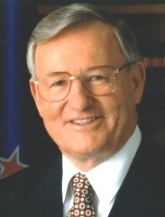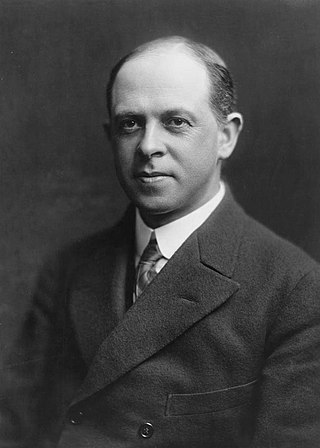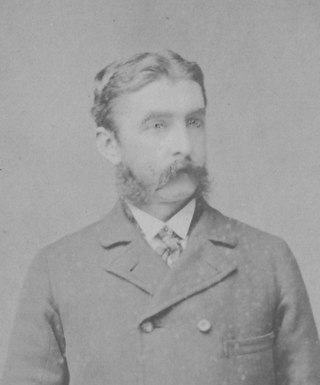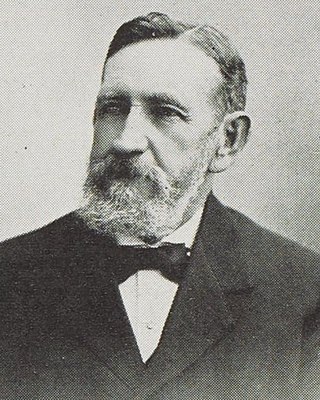Related Research Articles

The 1990 New Zealand general election was held on 27 October to determine the composition of the 43rd New Zealand parliament. The governing Labour Party was defeated, ending its two terms in office. The National Party, led by Jim Bolger, won a landslide victory and formed the new government.

The 1935 New Zealand general election was a nationwide vote to determine the shape of the New Zealand Parliament's 25th term. It resulted in the Labour Party's first electoral victory, with Michael Joseph Savage becoming the first Labour Prime Minister after defeating the governing coalition, consisting of the United Party and the Reform Party, in a landslide.

Nelson is a New Zealand parliamentary electorate, returning one Member of Parliament to the House of Representatives of New Zealand. From 1853 to 1860, the electorate was called Town of Nelson. From 1860 to 1881, it was City of Nelson. The electorate is the only one that has continuously existed since the 1st Parliament in 1853.
The Nelson by-election was a by-election in the New Zealand electorate of Nelson a predominantly urban seat at the top of the South Island.
Wairau was a parliamentary electorate in the Marlborough Region of New Zealand. It was one of the initial 24 New Zealand electorates and existed from 1853 until its abolition in 1938, when it was succeeded by the Marlborough electorate. The electorate had 13 representatives during its existence. The 1861 election in the Wairau electorate was notable in that a later Premier, Frederick Weld, was unexpectedly and narrowly defeated by William Henry Eyes.

Sir Ernest Hyam Davis was a New Zealand businessman, and was Mayor of Auckland City from 1935 to 1941. He was also on other Auckland local bodies and on various philanthropic and sporting organisations. He was Mayor of Newmarket from 1909 to 1910.
Waimea was a parliamentary electorate in the Nelson Province of New Zealand, from 1853 to 1887. Initially represented by two members, it was a single-member electorate from 1861.
The Suburbs of Nelson is a former parliamentary electorate around the city of Nelson, New Zealand from 1861 to 1881.

Arthur Alfred Richmond Atkinson was a New Zealand barrister and solicitor, Member of Parliament and Wellington City Councillor.

Sir Ernest Herbert Andrews was a New Zealand teacher, printer and cricketer and local-body politician. He was on the Christchurch City Council from 1919 and Mayor of Christchurch from 1941 until his retirement in 1950.

Henry Sawtell was Mayor of Christchurch 1871–1872.

Walter Hippolyte Pilliet JP was a 19th-century Member of Parliament in Christchurch, New Zealand. He worked initially as a surveyor and was then resident magistrate in several places. He was a newspaper editor and was represented in Parliament for one term.

Martin Lightband was a 19th-century Member of Parliament from Nelson, New Zealand.
The 5th New Zealand Parliament was a term of the New Zealand Parliament. Elections for this term were held in 68 European electorates between 14 January and 23 February 1871. Elections in the four Māori electorates were held on 1 and 15 January 1871. A total of 78 MPs were elected. Parliament was prorogued in December 1875. During the term of this Parliament, six Ministries were in power.

Jesse Piper was a Nelson, New Zealand city councillor and mayor.

The Wairau by-election 1872 was a by-election held in the Wairau electorate during the 5th New Zealand Parliament, on 19 February 1872. The by-election was caused by the resignation of incumbent MP William Henry Eyes and was won by Arthur Seymour, who defeated Joseph Ward. Both candidates were prominent Marlborough politicians, and for both of them, this was their first attempt at election to the General Assembly.

The 21 June 1875 Wairau by-election was a by-election held in the Wairau electorate in the Marlborough Province during the 5th New Zealand Parliament. The by-election was caused by the resignation of incumbent MP Arthur Seymour and was won by Joseph Ward, who defeated William Sefton Moorhouse. Ward was a well-known politician in Marlborough. Moorhouse had political seniority over Ward and was at the time Mayor of Wellington, but had no personal connection to Marlborough.
The 1872 Egmont by-election was a by-election held on 3 October 1872 during the 5th New Zealand Parliament in the Taranaki electorate of Egmont.
The 1879 City of Auckland West by-election was a by-election held on 4 March 1879 in the City of Auckland West electorate during the 6th New Zealand Parliament. It was then a two-member electorate.
The 1867 Waimea by-election was a by-election held on 28 June 1867 in the Waimea electorate during the 3rd New Zealand Parliament.
References
- ↑ "Nelson City Election". The Colonist. 28 May 1872.
- ↑ "The Moral of the Election". Nelson examiner. 29 May 1872.
- ↑ "City Election". Nelson Evening Mail. 30 May 1872.
- ↑ "By Electric Telegraph". Evening Star. 28 May 1872.
- ↑ "Untitled". Wellington Independent. 28 May 1872.